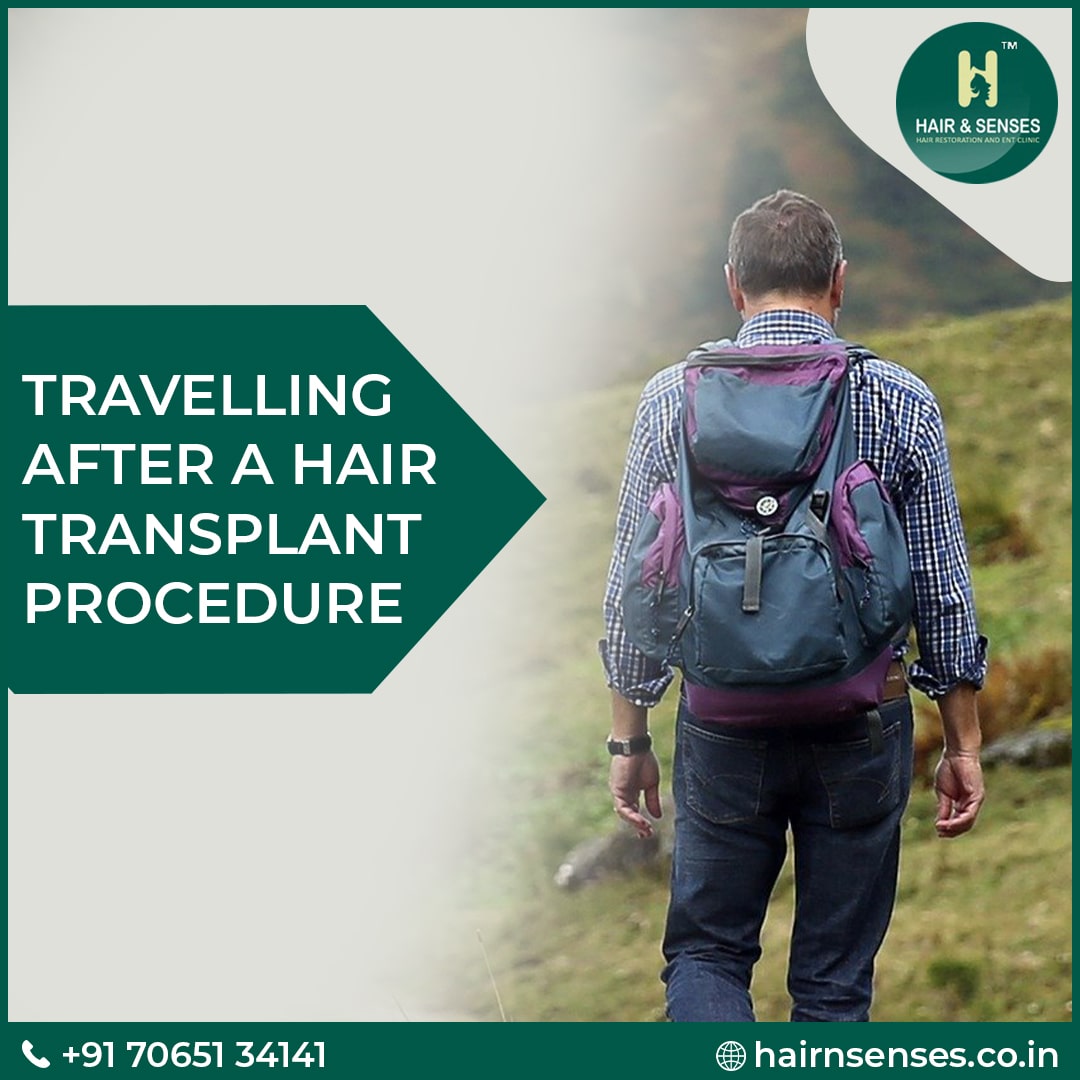Travelling after a hair transplant procedure
Dec, 30 2020 | By Dr. Sangay Bhutia (Hair Transplant Specialist in Delhi)
You may have heard that modern hair transplant procedures are quick, easy, and the recovery time is fast. Well, it is all true. Patients travel across the country or even across the world for hair transplant procedures, and some even travel back within two to three days. It is possible.
After both Follicular Unit Transplantation (FUT) or Follicular Unit Extraction (FUT) procedures, patients are advised to take at least a day or two off from work, if they are in the same city, and keep in touch with the doctor about their recovery during this time. If they are travelling, it is recommended that they stay at least two to three days at a hotel or the hospital, if it has facilities, so they have the doctor within their reach especially in the first 24-48 hours. This helps the patient rest, especially those who had a lengthy session and needed more grafts.
Post surgery, patients usually experience swelling within 24-48 hours of the procedure. It is on the forehead and goes down to the eyelids. The swelling resolves on its own within 48-72 hours. Patients may also have some amount of bleeding in the donor area, and pain in both the donor as well as the recipient areas of the scalp. Doctors recommend painkillers for it which the patient can take if they feel discomfort or a stretching sensation.
They may also feel numbness or a tingling sensation, which will also resolve itself in a day or two. While most of these are regular post-surgery issues that patients face commonly, if they notice too much bleeding or pain, they must call the clinic or the doctor immediately. It is for this reason that doctors advice patients to stay close to the clinic for a few days. The best time to travel, especially if you are taking a flight, is once the pain and swelling has subsided -- in about two-three days. The risk of infection is also low at this point, although there will still be some scabbing on the scalp. Patients can wear a loose hat to hide that if they wish; the scabs fall off on their own after about three to 10 days.

For patients who will be taking long international or even national flights, it is advisable they take a comfortable hotel for a few days near the clinic, rest, and go back for a follow up before they leave. It is also good for their own peace of mind. If they don’t have that kind of time, let the doctor know that in advance so the clinic can draw up a plan for you with postoperative do’s and don'ts, and all of the instructions you need for a safe trip.
For some patients, flying is also a concern as they worry about the pressure they would undergo at that altitude. This can result in some added swelling in the body, and cause stress to the scalp. While flying in itself won’t have an impact on the new implants, it may cause some discomfort. Whenever you choose to fly, keep your prescribed pain pills ready.
The added precaution while flying is to be extra careful with overhead luggage. While the chances of someone hitting their head against the overhead cabin are very low, patients have to be careful that they don’t let it happen as it may disturb the newly implanted drafts.
Also, those patients who are travelling internationally may be served alcohol inflight. That must be avoided; alcohol thins the blood and may prevent clotting, leading to bleeding in the donor area.
For patients, who will be travelling by road, it is recommended that they use air conditioning in their car, especially in warm weather to avoid any sweating which may cause an infection. They should also keep their windows rolled up in order to avoid dust, and ensure that their head doesn’t rub on the seat.
Last but not the least, follow all post surgery care instructions carefully, and let the doctor know of your travel plans in advance. This will help them tailor post-surgery care instructions in a way that is best suited for you and your itinerary.
